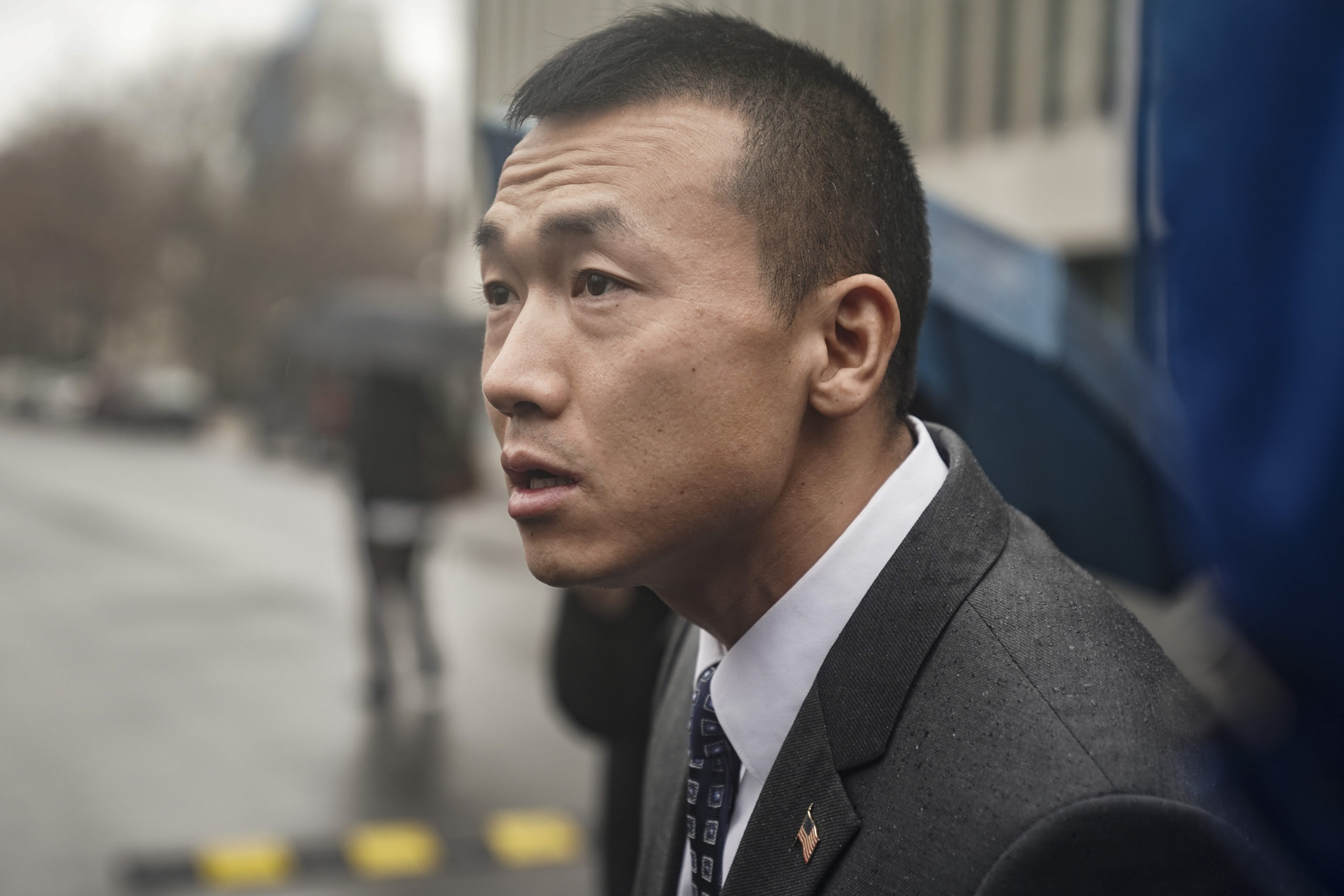US drops case against NYC cop accused of spying for China

NYPD officer Baimadajie Angwang, a naturalized US citizen from Tibet, speaks during a press briefing outside Brooklyn's Federal court after a judge dismissed spy charges against him, Thursday Jan. 19, 2023, in New York. U.S. prosecutors dropped charges against Angwang, who authorities had initially accused of spying on independence-minded Tibetans on behalf of the Chinese consulate in New York. AP Photo/Bebeto Matthews
DOWNTOWN BROOKLYN — Charges against a New York City police officer accused of spying on behalf of China were formally dropped Thursday after U.S. prosecutors said they uncovered new information that warranted the dismissal.
It ended a two-year ordeal for Baimadajie Angwang, a naturalized U.S. citizen born in Tibet, who spent about six months in custody before being granted bail. He had been accused of spying on expatriate Tibetans in New York on behalf of officials at the Chinese consulate in the city.
Outside the federal courthouse in Brooklyn, Angwang, wearing a pin of the American flag on his lapel, thanked his family and his supporters, including those on the city’s police force and the U.S. Marine Corps, where he formerly served.
